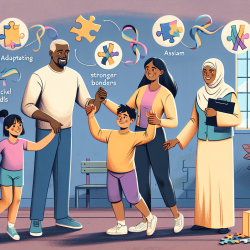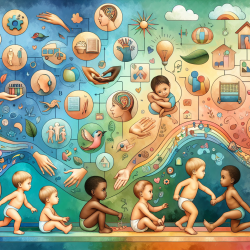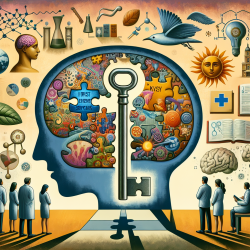Adapted Physical Activity (APA) plays a crucial role in the development and well-being of individuals with Autism Spectrum Disorder (ASD). The research article "Understanding the Families’ Perceptions of Adapted Physical Activity for Individuals with Autism Spectrum Disorder through Metaphors" provides valuable insights into how families perceive APA and the educators who deliver these programs. By analyzing the metaphors used by families, this study sheds light on the educational, emotional, and social impacts of APA on individuals with ASD.
Key Findings
The study categorized the metaphors into four main themes for educators: education, emotion, support, and development. For APA, three themes emerged: education, emotion, and social adaptation. These themes were further divided into categories such as guidance, skill, affection, care, experience, knowledge, entertainment, independence, happiness, and treatment.
Perceptions of Educators
- Education: Families view educators as heroes, sculptors, friends, and guides who teach their children valuable skills and knowledge.
- Emotion: Educators are seen as comrades, family members, and artists who build emotional bonds with the children, making learning enjoyable and engaging.
- Support: Educators are likened to favorite aunts/uncles, lights, and angels, providing constant support and guidance.
- Development: Educators are compared to friends, door keys, psychologists, and fairy godparents, helping children develop skills and confidence.
Perceptions of Adapted Physical Activity
- Education: APA is seen as a favorite lesson, pomegranate, life, field, and school, offering comprehensive learning experiences.
- Emotion: APA classes are likened to amusement parks, games, homes, and rollerblading, emphasizing fun and happiness.
- Social Adaptation: APA is compared to doors, roads, tests, medicine, keys, compasses, life-jackets, theatres, puzzles, and therapy, highlighting its role in promoting independence and social skills.
Implications for Practitioners
Understanding the families' perceptions can help practitioners tailor their approaches to better meet the needs of individuals with ASD. Here are some actionable insights:
- Build Emotional Bonds: Foster strong emotional connections with both the children and their families. This can enhance engagement and learning outcomes.
- Provide Comprehensive Education: Ensure that APA programs cover a wide range of skills and knowledge, making learning both enjoyable and educational.
- Support Social Adaptation: Design APA activities that promote social skills and independence, helping individuals with ASD integrate better into society.
- Involve Families: Actively involve families in the APA programs, seeking their feedback and incorporating their suggestions to create a more inclusive and effective learning environment.
Encouraging Further Research
This study highlights the positive perceptions families have towards APA and educators, but there is always room for improvement. Practitioners are encouraged to conduct further research to explore new methodologies and strategies that can enhance the effectiveness of APA programs.
To read the original research paper, please follow this link: Understanding the Families’ Perceptions of Adapted Physical Activity for Individuals with Autism Spectrum Disorder through Metaphors.










